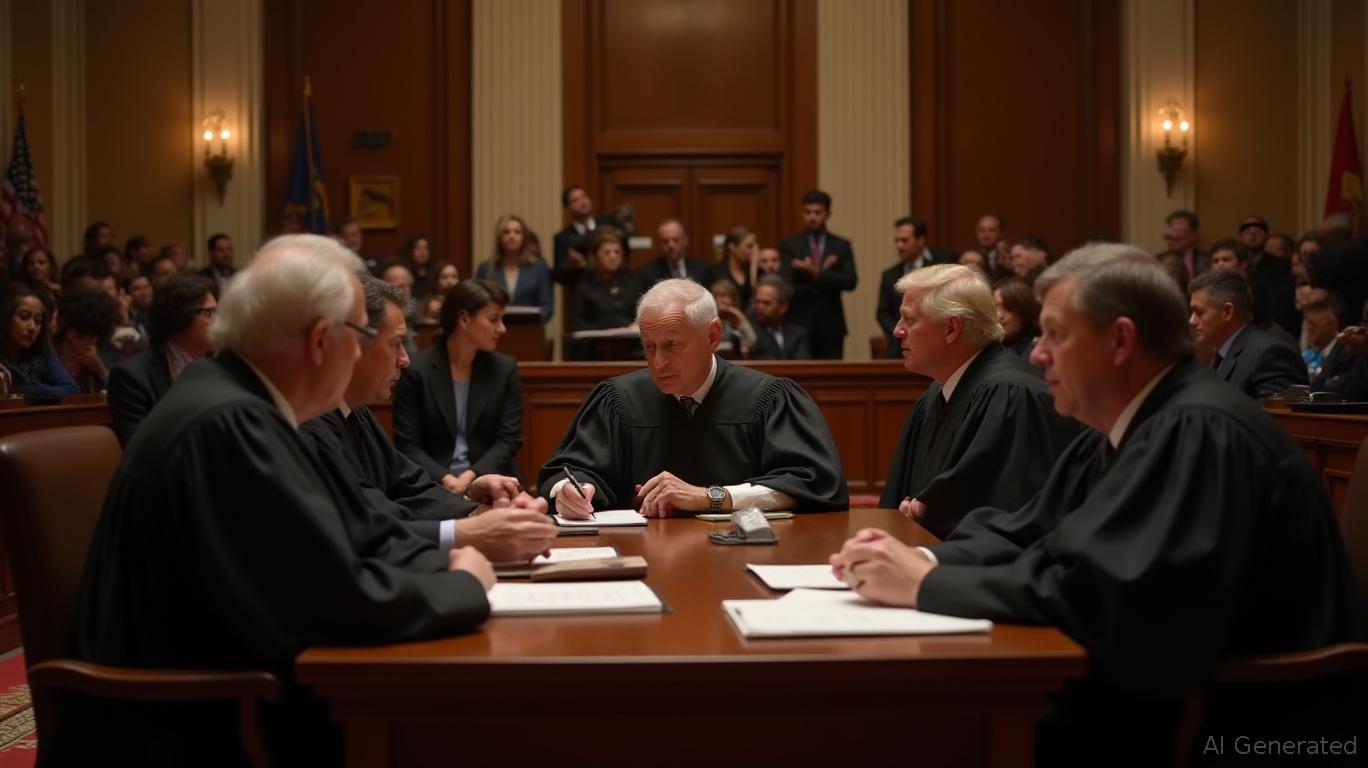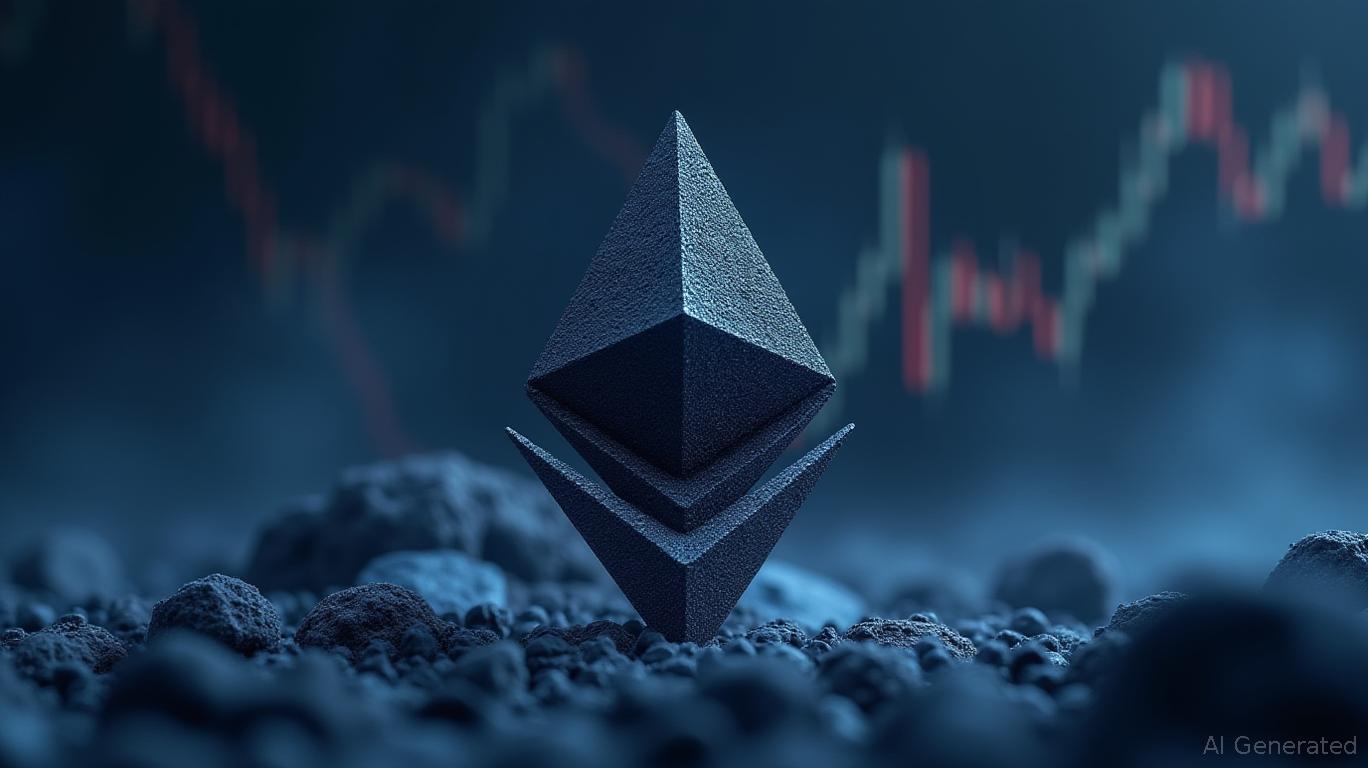Supreme Court to Rule on Whether Trump's Tariffs Broaden Presidential Authority Beyond Congressional Limits
- The U.S. Supreme Court will decide the legality of Trump's global tariffs, potentially redefining presidential power in trade policy. - Small businesses and 12 states challenge the tariffs, arguing they exceed presidential authority and disrupt trade. - The administration defends tariffs as national security measures under IEEPA, but lower courts ruled they lack explicit legal authority. - A ruling against Trump could allow $100B in refunds, while upholding tariffs may set a precedent for expansive execu
The forthcoming decision by the U.S. Supreme Court regarding President Donald Trump’s extensive global tariffs could significantly alter the scope of presidential authority over trade, with far-reaching effects on national security, international relations, and the economy. Trump, who has described the case as a fundamental challenge to his "America First" policy, has chosen not to be present at the hearing, labeling the lawsuit as "one of the most important decisions in the history of the country," according to a
Central to the case are small businesses and states led by Democrats, who contend that Trump’s tariffs—ranging from 10% to 50% on imported goods—have created turmoil for companies trying to adapt to ever-changing regulations. Rick Woldenberg, a toy manufacturer based in Chicago, illustrates these challenges. His firms, Learning Resources Inc. and hand2mind Inc., were hit with a $50,000 fine after moving production from China to India, only to be affected by another tariff increase, according to a

The administration maintains that the tariffs are vital for national security and economic strength, pointing to issues like the trade deficit and the fentanyl epidemic as justification for acting alone. Solicitor General D. John Sauer argued in legal briefs that the IEEPA’s provision allowing the president to "regulate importation" during emergencies gives implicit authority to impose tariffs, according to Politico. However, lower courts have found by a 7-4 margin that the law does not specifically grant the president the power to broadly tax imports, a view shared by legal experts who highlight that Congress intentionally excluded tariff powers from the IEEPA, Politico reported.
The consequences go beyond legal arguments. Should the court overturn the tariffs, businesses could claim refunds totaling over $100 billion, with major importers such as Walmart, Samsung, and Amazon standing to gain considerably, a
The Supreme Court’s conservative bloc faces a nuanced challenge. Although the justices have often deferred to presidential power in national security, they have also expressed doubt about unchecked executive control over economic matters. Justice Brett Kavanaugh, whose previous opinions stress the "major questions doctrine"—which requires explicit congressional approval for significant regulatory actions—could be a key figure, Politico noted. His past views suggest the tariffs might be ruled illegal, but his support for presidential discretion in foreign affairs adds complexity, according to Politico’s reporting.
This case marks a rare point of vulnerability for Trump. Despite a series of legal successes since returning to office, a loss here would deal a blow to his hallmark economic strategy and diminish his influence in trade talks. Nevertheless, administration officials have backup plans to reinstate tariffs under different laws, though these would involve more administrative obstacles, as Forbes pointed out.
As the justices deliberate, the outcome is poised to reshape the landscape of U.S. trade authority for years to come.
Disclaimer: The content of this article solely reflects the author's opinion and does not represent the platform in any capacity. This article is not intended to serve as a reference for making investment decisions.
You may also like

Bitcoin News Update: The Crypto Landscape Shifts as Influencers Depart and Major Institutions Enter
- BSC meme coin KOLs are liquidating holdings amid volatility, triggering market consolidation. - GIGGLE and "Binance Life" saw short-term rebounds, but most tokens face ongoing sell-offs. - Analysts link exits to macroeconomic pressures and institutional entry reshaping crypto ownership. - Bitcoin/ETH ETF outflows ($327M) and rising sell-pressure age (100 days) highlight broader risk-off sentiment.

Ethereum News Update: Transforming Blockchain Privacy: Zama and Kakarot Unite to Achieve Over 10,000 Private TPS
- Zama acquires KKRT Labs to merge FHE and ZK technologies, targeting 10,000+ confidential TPS on Ethereum and Solana . - KKRT, backed by Buterin and StarkWare, brings ZK rollup expertise to enhance blockchain scalability and privacy infrastructure. - The $1.2B-valued Zama aims to expand research teams and integrate modular systems for high-throughput confidential finance. - Industry leaders praise the merger as pivotal for advancing privacy-preserving DeFi and overcoming blockchain adoption barriers.

Ethereum News Update: Bearish Whale’s $24 Million ETH Short Confronts Bullish Divergence
- Ethereum whale increases ETH short position 25x to $24M, signaling heightened bearish sentiment amid market recalibration. - Holder Accumulation Ratio (HAR) drops to 30.45%, reflecting reduced long-term holder buying pressure and aggressive short-term whale positioning. - Technical analysis reveals hidden bullish divergence with ETH near $3,860, but key resistance at $4,240 remains critical for trend validation. - Market uncertainty persists as whale positioning clashes with staking yield-driven accumula
